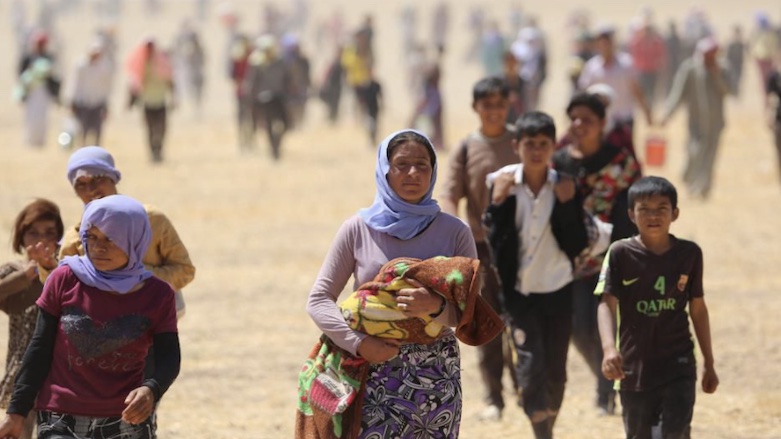SEED Foundation calls for safer internet for women in Iraq and the Kurdistan Region
“Conflict-related sexual violence (CRSV) is an exceptionally brutal form of gender-based violence (GBV) – inclusive of rape, sexual slavery, forced impregnation or sterilization.”

ERBIL (Kurdistan 24) – On International Day for the Elimination of Sexual Violence in Conflict on Monday, the SEED Foundation called for new methods to protect women against online abuse and violence in Iraq and the Kurdistan Region.
On International Day for the Elimination of Sexual Violence in Conflict, we stand for equal access to digital spaces & digital literacy for ALL to prevent the misuse & weaponization of the internet in conflict.
— SEED (@SEEDKurdistan) June 19, 2023
Full statement: https://t.co/Er3faJlIJT #EndRapeInWar pic.twitter.com/4eBlrJnYal
“Online violence and abuse can move offline, leading, in the most extreme cases, to unspeakable terror and death,” the SEED Foundation said in a statement.
“Conflict-related sexual violence (CRSV) is an exceptionally brutal form of gender-based violence (GBV) – inclusive of rape, sexual slavery, forced impregnantion or sterilization, and other related violations – which may be leveraged in conflict to punish, humiliate, inflict terror, and degrade the social fabric of families and communities.”
The SEED Foundation also said that the ISIS conflict has shown the use of sexual violence as a tool of genocide against Yezidis and other minority groups in the digital space. “ISIS exploited digital platforms to trade and traffic women and girls, resulting in grave sexual violence that included enslavement, rape, and torture”.
“Thousands of women were abducted and subjected to extreme brutality. This violence, facilitated online, has introduced compounding vulnerabilities for those who survived the genocide but remain in protracted displacement nearly nine years later, without access to critically needed resources and at increased risk of exploitation and abuse,” the statement added.
The SEED foundation said there should be more work to make the internet safer for women and other vulnerable groups by equalizing access to digital spaces, building digital literacy, and ensuring there are effective complaint and content moderation mechanisms in Iraq.
"Improving the status of women and preventing violence against them is essential to building secure, stable, prosperous, peaceful, and resilient societies, and leads to better outcomes for all,” Sherri Kraham Talabany, SEED Foundation President and Executive Director, told Kurdistan 24 on Monday.
“Gender equality is the number one predictor of whether a country is at peace - more so than a state's wealth or governance. As we enter this new phase of development in Kurdistan, it’s incredibly important that Government and NGOs work together to ensure that we can continue to meet the needs of conflict affected populations and those affected by CRSV through the new GBV Sector Coordination Group, and that we address all manifestations of gender inequality, including in the digital sphere, to protect women and prevent future episodes of violent conflict.”
In broader news, to commemorate International Day for the Elimination of Sexual Violence in Conflict, U.S. Secretary of State Antony J. Blinken in a statement on Monday also underlined that the U.S. “recognize[s] we must do more to bolster the rights and empowerment of survivors; promote survivors’ access to services and justice; and hold perpetrators accountable for their heinous crimes.”
“The United States does not accept conflict-related sexual violence (CRSV) as an inevitable cost of armed conflict. We remain committed to supporting survivor-centered and trauma-informed approaches to helping survivors access the services needed to help them recover and secure the justice they deserve,” Blinken added.
